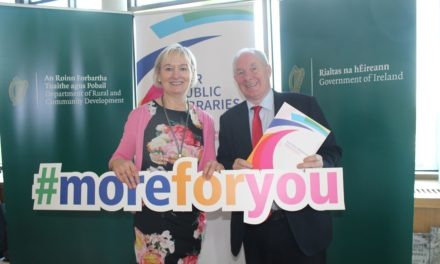As laws come into effect to cap moneylending rates, Olive McCarthy and Noreen Byrne of the University College Cork (UCC) Centre for Co-operative Studies explain why they support it.
We very much welcome progress to enact legislation that will cap the rate charged by moneylenders, thereby ending the exorbitant fees currently charged on the loans of 330,000 people, or 7% of the population.
The second stage of the private member’s bill brought by Pearse Doherty, Sinn Féin’s finance spokesperson, passed in the Dáil on 13 December.
If Deputy Doherty’s cap is introduced, it would bring Ireland into line with other EU countries that already cap the interest rates charged on loans. In Spain, anything above 24% is unacceptable. At present, moneylenders here charge up to 187%.
We endorse the suggestion from Michael McGrath, TD (Fianna Fáil), that legislators should invite moneylenders such as Provident, as well as MABS and the Social Finance Foundation, to speak to the select committee so that they could hear all the different perspectives.
In the debate, McGrath said: “We must try to establish why so much business is being done in this sector. When one looks at the figures, it is hard to believe so much business is being done with licensed moneylenders. It is big business and it is very profitable.”
All sides recognise the importance of providing alternative sources of credit to replace the service currently provided by moneylenders, and we are heartened to hear politicians call for “a reliable alternative to licensed moneylenders”.
We are pleased to see Fine Gael – indeed all parties – recognise that the key is to get the credit union movement to commit to serving the people currently serviced by moneylenders.
Half of credit unions are currently taking part in a Personal Micro-Credit (PMC) scheme, and the other half will, we hope, now strongly consider joining it.
Moneylenders lead many people into a poverty trap. It is a mark of a mature democracy that we are finally clamping down on this social injustice. As our study (conducted on behalf of the Social Finance Foundation) showed, borrowers in Ireland currently owe more than half a billion euro to moneylenders.
How things stand
Within nine months, 330,000 people on low income in Ireland are expected to pay €153m to 39 moneylending companies. The loans are subject to interest rates of up to 187%.
These are some of the findings taken from our report, launched on 14 November, entitled ‘Interest Rate Restrictions on Credit for Low-income Borrowers’. Research was compiled by us [Olive McCarthy and Noreen Byrne] and Mary Faherty at University College Cork’s Centre for Co-operative Studies.
That report found that:
Most customers of moneylenders are female, in the lower socio-economic group and aged between 35 and 54 years of age. They owe an average of €566 each, to be paid back over a nine-month period.
There is no doubting the popularity of the quick and easy loans, but most countries curtail the interest rates charged.
In Ireland, all 39 licensed moneylending firms are currently allowed to charge interest rates of up to 187% (excluding collection charges), and up to 287% including charges [known as Annual Percentage Rates, or APRs].
Of the 39 firms, 31 are categorised as home collection credit firms. Home collection credit firms have APRs of up to 287%, and call to customers’ homes on a weekly basis to collect loan repayments.
The remaining firms are catalogue companies. Catalogue companies typically have lower APRs than home credit companies, with interest rates in the region of 43% to 72%. Almost 50% of the customers of moneylending firms are customers of catalogue companies.
Despite the extremely high-cost of moneylending credit, customers report satisfaction with the convenience and ease with which they can borrow from and repay moneylending firms.
Olive McCarthy is a senior lecturer at University College Cork, and is director of the university’s Centre for Co-operative Studies.
Noreen Byrne is a lecturer at University College Cork, and is a member of staff at the university’s Centre for Co-operative Studies.





